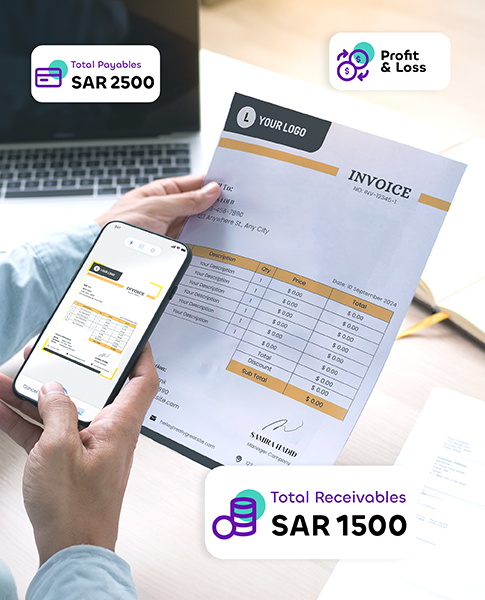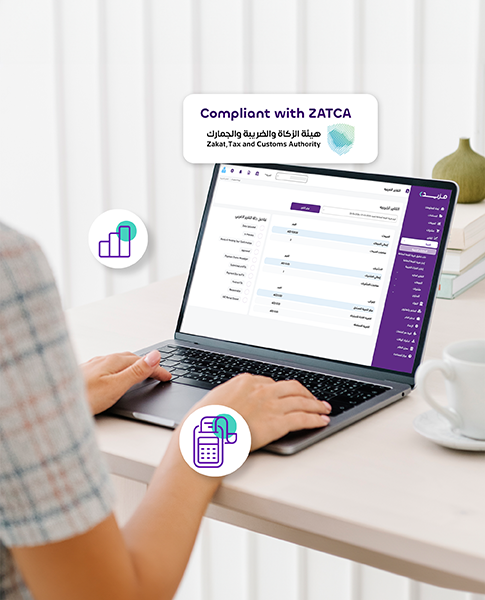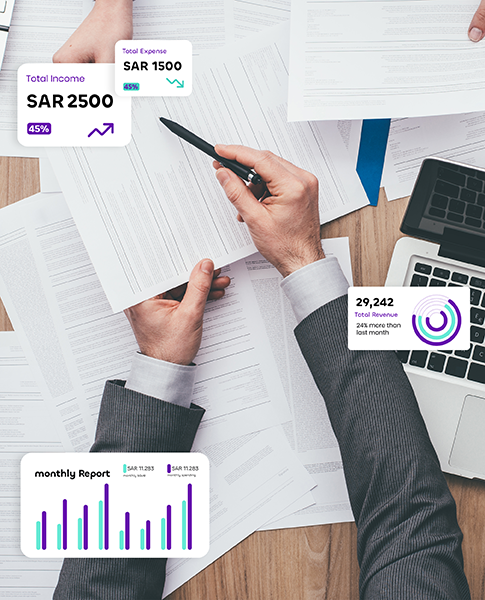I enjoy collaborating with the mazeed team; some of your staff are exceptionally professional with my clients, making the service satisfactory.
This Ramadan, 50% OFF Accounting Software! Sign Up Now!









Enjoy automatic recording of daily transactions and avoid human errors—no data entry needed.
Get precise expense calculations and discover all deductions and allowances to minimize your tax bill.
Keep your cash flow steady and boost business health with smart financial planning. Avoid surprises and stay ahead of potential issues.
Access real-time reports anytime, anywhere to see how your business is performing now and take decisions on the fly. data-driven decisions on the go with instant financial insights.
Stay compliant with all legal requirements, keep records for 7 years, never miss a deadline, and get expert support during audits.

Create your account for automated financial management.
Set up your account and personalize your financial management workflow to fit your business needs.
Our platform captures data from your shared invoices, receipts, and financial documents, automating compliance from record-keeping to tax return preparation.
Access real-time financial reports, statements, and insights from a single dashboard. Pretty Simple, huh?



Help business owners get ready for Taxes and Zakat ahead of time.
Learn more
Help businesses create expert planning and budgeting for their business.
Learn more



I enjoy collaborating with the mazeed team; some of your staff are exceptionally professional with my clients, making the service satisfactory.
Uploading financial records is straightforward with mazeed. All data is securely stored digitally, eliminating the need for paper. This service is quick and straightforward, helping to save both time and effort.

For startups like ours, it’s more economical to outsource accounting functions rather than maintain full departments. mazeed offers the breadth and professionalism of expertise that surpasses what we could afford in-house. It functions like an entire accounting and tax department but at a fraction of the cost.

mazeed’s services are effective and efficient, providing timely reports and records that meet our needs.
mazeed is simply the best I’ve encountered so far, and I’ve been recommending it since day one! The team is highly professional, and their online platform is exceptionally user-friendly.
Saudi Arabia primarily follows the International Financial Reporting Standards (IFRS). This aligns with the global trend towards harmonization of accounting standards.